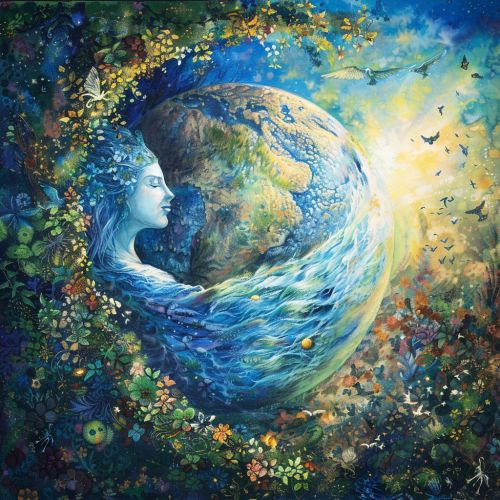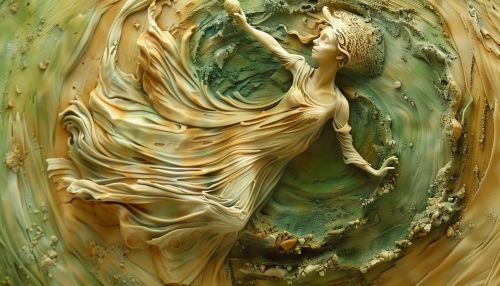Gaia (mythology)
Origins
The concept of Gaia originates from ancient Greek mythology, where she is considered the primordial deity or personification of the Earth. Gaia, also spelled as Gaea, is derived from the ancient Greek Γαῖα, a pre-Socratic name for the Earth. The term has been used in various forms throughout Greek literature, including epic, lyric, tragic, and philosophical works.


Role in Greek Mythology
In Greek mythology, Gaia is one of the first beings to emerge at the creation of the universe, born from Chaos, the void of nothingness. She gave birth to the sky, the mountains, and the sea. Not only was Gaia considered the mother of these entities, but she was also seen as their physical embodiment.
Family
Gaia's family tree is vast and complex. Her first offspring was Uranus, the sky, whom she created alone. Together with Uranus, she bore the Titans, the Cyclopes, and the Hecatoncheires. After Uranus was overthrown by their son, Cronus, Gaia then gave birth to the Giants and the monstrous Typhon with Tartarus.
Worship and Cult
The cult of Gaia was widespread in ancient Greece. She was revered as the all-nourishing mother of all life and was often depicted in ancient art as a matronly woman rising from the earth. The most famous site of Gaia worship was at Delphi, where the oracle was said to be her mouthpiece.
Gaia in Philosophy
The concept of Gaia has been influential in philosophy, particularly in the field of environmental philosophy. The Gaia hypothesis, proposed by James Lovelock, suggests that the Earth and its ecosystems behave as a single self-regulating entity.
In Popular Culture
Gaia continues to be a popular figure in modern culture, particularly within the genres of fantasy and science fiction. She is often depicted as a powerful nature goddess or as the embodiment of the Earth itself.
